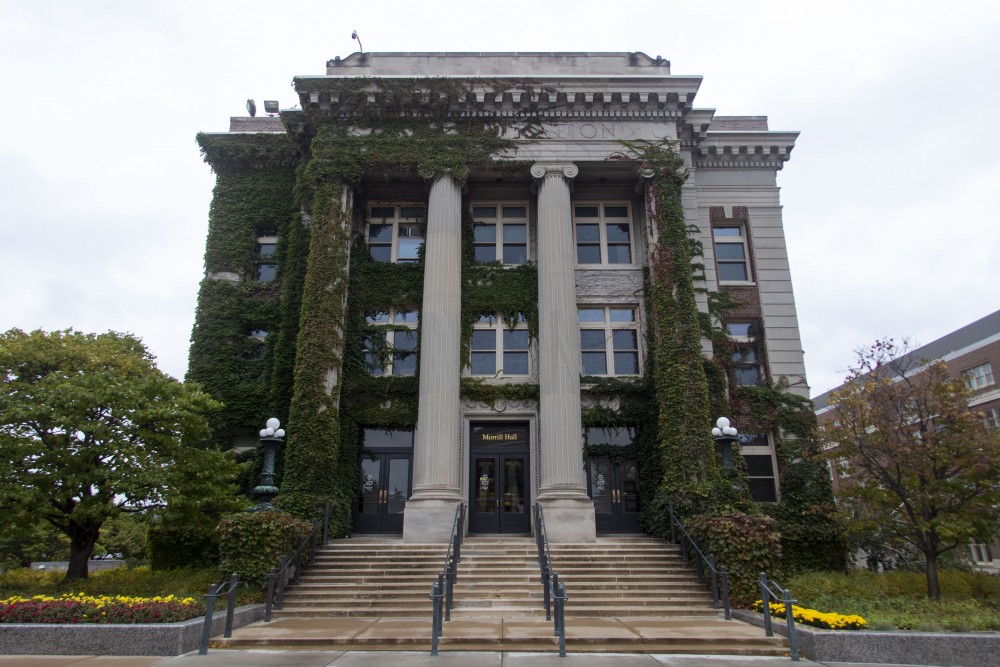Acknowledging that a low percentage of faculty are from underrepresented backgrounds at the University of Minnesota, administrators have laid out plans to recruit and retain a more diverse set of faculty.
Data from 2018 show around 6% of the University’s tenure and tenure-track faculty come from underrepresented racial backgrounds. This compares to 13.8% in the Minnesota population.
Several programs and future goals intended to improve those statistics were presented at a Board of Regents meeting this month, the first of three presentations focused on diversity. The says it has University has committed to enhancing faculty diversity through strategic recruiting, support for diverse research and scholars, and membership in several national initiatives.
Vice Provost and Dean of Graduate Education Scott Lanyon said when trying to recruit students from diverse backgrounds, having diverse faculty is important.
“The quality of the scholarship we do is dependent on the diversity of people doing that scholarship,” Lanyon said.
Multicultural Research Awards
College of Education and Human Development professor Vichet Chhuon is a former recipient of a multicultural research award. These awards support faculty by providing funding for interdisciplinary research on social issues.
The award highlighted an institutional commitment and support for faculty of color and work that focuses on issues of equity and diversity, Chhuon said.
While it is a positive initiative, it is just one piece within the topic of diversity among faculty at the University, he said.
”I think the University has a long way to go,” Chhuon said.
President’s Postdoctoral Fellowship Program
Another program is the President’s Postdoctoral Fellowship, which recruits scholars from diverse backgrounds who may become a faculty member in the future.
Elizabeth Wijaya was a fellow in the program last year, and is now an assistant professor at the University of Toronto.
Wijaya said the program allowed her to pursue interdisciplinary interests and research on East and Southeast Asian cinema and continental philosophy.
“Not only was the experience intellectually rich, but I quickly felt part of a community of scholars and friends,” she said in an email to the Minnesota Daily.
Wijaya said beyond statistical change, embracing diverse experiences will contribute to more diversity of knowledge in education.
“As a first generation college student who grew up in Southeast Asia, I believe that having researchers with a multiplicity of viewpoints and experiences will allow the college experience to be more welcoming and equitable for students from diverse backgrounds,” she said in the email.
Meixi Ng, who started as a postdoctoral researcher at the University this year, is pursuing research in the Department of American Indian Studies, with an interest in land-based education and indigenous math.
Ng said there is often a “tax” on faculty of color in majority white institutions. These faculty often end up mentoring more students with similar identities as them, supporting student groups, or doing service in different committees and departments because of their identity.
“Having the presidential postdoc, as sort of this time for you to prepare to go into a tenure-track position, it seemed like a really important part of my development and would be a really great opportunity to get that kind of support,” she said.
Ng said she believes including different backgrounds and ways of knowing in academia is vital to creating a different direction for the future.
Funding from the National Science Foundation
A group of faculty is working on a proposal to request funding from the National Science Foundation’s ADVANCE program. The program helps fund gender equity initiatives and recruitment of female STEM faculty.
Associate Vice Provost with the Office of Equity and Diversity Keisha Varma said she has noticed at other universities that this program often helps to foster other kinds of diversity as well.
“It becomes institutionalized in a way that makes a long-term impact in the way that they support their faculty and support faculty diversity,” she said.
Future directions
One initiative that OED hopes to tackle in the future is refreshing the handbook used by faculty search committees, Varma said.
The handbook was last revised in 2012. While much of the information is still helpful, Varma said she wants to update it to ensure it reflects current best practices for recruiting and hiring.








